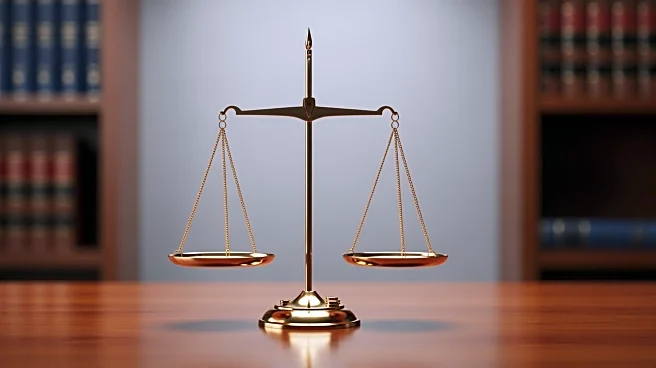What's Happening?
Legal experts have raised concerns about the erosion of judicial independence in North American democracies, describing the situation as a 'Rule of Law Recession.' This term refers to the perceived decline in the ability of courts to operate free from
political influence and pressure. The issue has been highlighted by recent events, including President Trump's state visit to the U.K., which coincides with global trade tensions and a significant court challenge to his trade policies that is set to be reviewed by the U.S. Supreme Court. Additionally, U.S. technology companies are facing regulatory challenges in the European Union, where they are battling fines and taxes imposed by EU regulators.
Why It's Important?
The threat to judicial independence in North America is significant because it undermines the foundational principle of separation of powers, which is crucial for maintaining democratic governance. If courts are perceived as being influenced by political agendas, it can lead to a loss of public trust in the legal system and hinder the fair administration of justice. This situation could have far-reaching implications for U.S. industries, particularly those involved in international trade and technology, as legal uncertainties may affect business operations and regulatory compliance. The ongoing legal battles faced by U.S. tech giants in the EU further illustrate the global impact of these judicial challenges.
What's Next?
The upcoming review of President Trump's trade policies by the U.S. Supreme Court will be a critical moment for assessing the independence of the judiciary in the United States. The decision could set a precedent for how trade-related legal challenges are handled in the future. Meanwhile, U.S. technology companies will continue to navigate the complex regulatory landscape in the EU, potentially leading to further legal disputes and negotiations. Stakeholders, including political leaders, businesses, and civil society groups, are likely to closely monitor these developments, as they could influence future policy decisions and international relations.
Beyond the Headlines
The erosion of judicial independence raises ethical and legal questions about the balance of power in democratic societies. It prompts a reevaluation of how political influence can be curtailed to preserve the integrity of the legal system. Long-term shifts may include increased advocacy for judicial reforms and stronger safeguards to protect the autonomy of the judiciary. These changes could reshape the legal landscape in North America and influence global perceptions of democratic governance.
















